One of the most memorable commercials aired during the Super Bowl game in 1993 featured Michael Jordan and Larry Bird facing off on the court for a Big Mac prize. More recently, during the 2010 Super Bowl McDonald’s revisited this ad, but with a newer cast. This time the commercial featured superstars Dwight Howard and Lebron James with a cameo by Larry Bird.
I have two goals with this article:
1) To call attention to elite athletes to get them to understand that some of their endorsements for monetary gain without proper research may have unintended negative consequences on the younger generation and their community’s health and wellbeing.
2) Show young aspiring athletes and kids that they need to take care of their own health without blindly following their role models’ food and performance recommendations as their role models could be promoting the products for their financial gain and not for the real benefits of nutrition or performance.
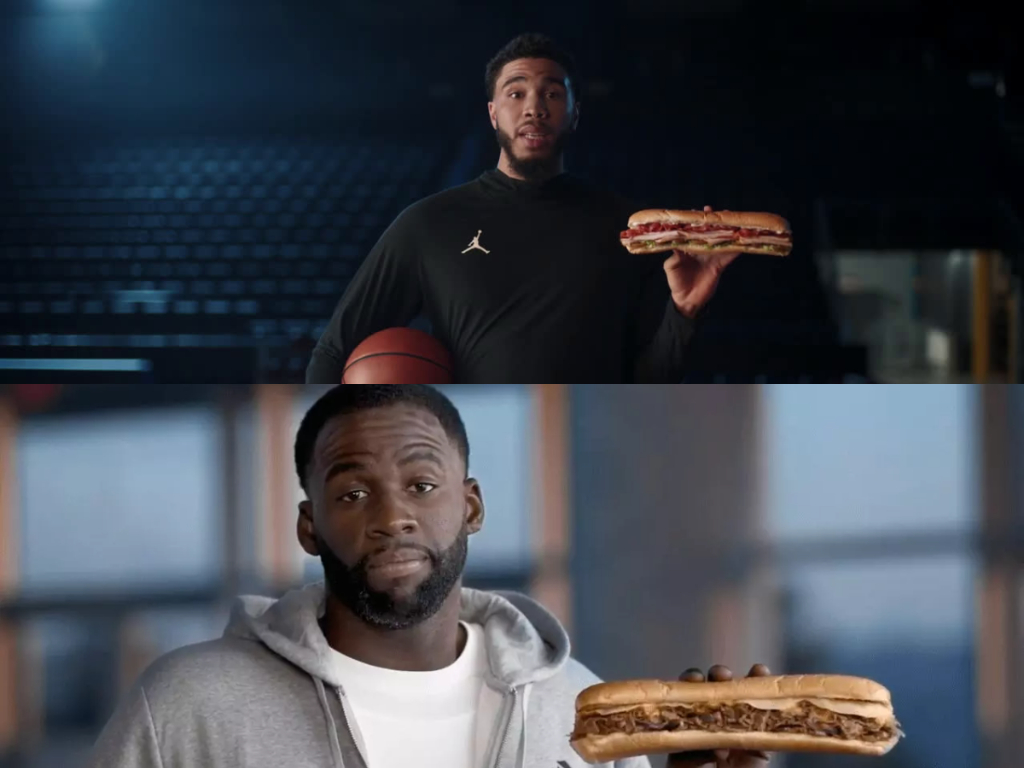
Here are some popular elite athletes’estimated total earnings from endorsements and appearances. These earning are from total endorsements including from the below highlighted food and beverage products:
- Lebron James: $64M including Coca Cola and Blaze Pizza
- Usain Bolt: $60M including Gatorade and unofficial endorsement of McDonald’s
- Roger Federer: $81M including Lindt chocolate
- Lionel Messi: $34Mincluding Pepsi and Gatorade
- Serena Williams: $32M including Gatorade
Then, when it comes to major sports leagues & events:
- National Football League (NFL) has a sponsorship with Subway
- In March 2021, the NBA announced a new multi-year licensing and partnership with Mondelez International, the conglomerate behind Oreo, Chips Ahoy!,Nutter Butter, Ritz Crackers, Trident and Sour Patch Kids an official partner of the NBA, WNBA, G-League, NBA 2K, the NBA 2K League and USA Basketball. NBA also has sponsorships with Taco Bell and Mountain Dew.
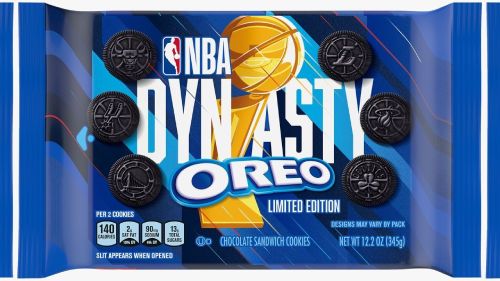
- National Hockey League (NHL) has a sponsorship with Dunkin Donuts
- Beijing 2022 Olympic and Paralympic Winter Games have Yum! China, the parent company of fast-food brands KFC, Pizza Hut, and Taco Bell as a sponsor.
- National Football League Players Association (NFLPA) has sponsorships with PepsiCo, Frito-Lay, Pizza Hut, and Gatorade.

Here’s the State of Our Country’s Health
According to CDC’s data from 2017-2019, we see significant health issues within the African American and Hispanic communities, specially with the younger generation:
- Childhood obesity is more common among Hispanic (25.8%) and non-Hispanic Black children (22.0%)
- 39.8% of Non-Hispanic Black adults had the highest prevalence of self-reported obesity, followed by 33.8% of Hispanic adults, and 29.9% of non-Hispanic White adults.
- 6 states had an obesity prevalence of 35%+ among non-Hispanic White adults.
- 35% or more non-Hispanic Black adults are rated as obese in 34 states and the District of Columbia (D.C.).
- 15 states had an obesity prevalence of 35%+ among Hispanic adults.
CDC data showsthat sugar-sweetened beverages (SSBs) or sugary drinks are leading sources of added sugars in the American diet.Unfortunately, these beverages tend to offer little to no nutritional value and increases the risk of having chronic diseases.
Frequently drinking sugar-sweetened beverages (SSBs) is associated with weight gain/obesity, type 2 diabetes, heart disease, kidney diseases, non-alcoholic liver disease, tooth decay and cavities, and gout (a type of arthritis).
According to the CDC, 6 out of 10 youths (2-19 years old) and 5 of 10 adults in the US consume a sugary drink on a given day.
- SSB intake is higher among boys, adolescents, non-Hispanic blacks, or youth living in low-income families.
- Among adults, SSB intake is higher among males, young adults, non-Hispanic blacks or Mexican American, or low-income adults.
Growing Up to Be Like My Superheroes
As I was presenting a lecture on health and performance to several amateur basketball and soccer groups in Tanzania in 2020, one of the poorest countries in the world, one question kept coming up repeatedly:
“What do you think of drinking Gatorade to improve my performance?”
They did not understand and could not believe how this product could be bad for them. Their favorite basketball players were drinking it on TV and recommending it. And here I was, telling
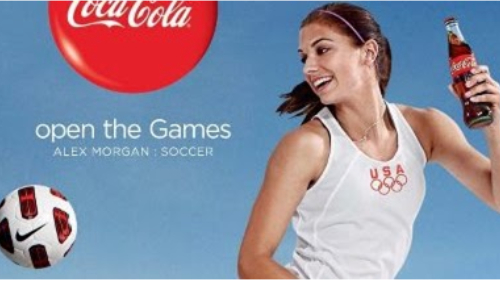
them to not consumeartificial sugars and processed food if they want to stay healthy for the long-term and improve their performance.
I knew exactly what was going through their mind, from my own personal experience. Growing up in Sri Lanka, all I wanted to be was a professional cricket player. Cricket in Sri Lanka is like American Football in the U.S. – people live and breathe it every day and it is a huge part of their lives. Idealizing the Sri Lankan National cricket players, I automatically tried to eat hotdogs and drink Milo (a very popularmalt chocolate drinkin Asia) as much as I could to emulate my idols’ behaviors and endorsements expecting to improve and be just like them when I grew up. Because I had so much trust and faith in these sports superstars, I trusted their endorsed products to be good for me.
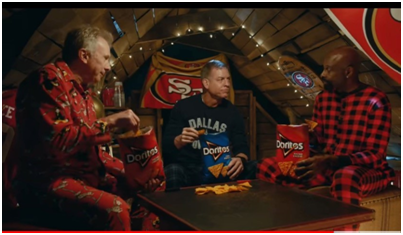
I have not had a processed hot dog or a Milo drink for the last 30 years. Knowing what I know now, I recently looked up the ingredients in Milo.An 8oz can has 17g of sugar – this is no different than a candy bar! It is made with four main ingredients: malt barley, milk powder, sugar and cocoa. Rest of the ingredients are nonfat Milk, sugar, barley malt extract, cocoa processed with alkali, milkfat, palm oil, carrageenan, soy lecithin and soy.These ingredients are toxic to our body and non-organic (grown with pesticides and genetically modified) so they put our body into stress mode trying to digest them rather than provide any nutritional food. The sugary ingredients provide a short-term unhealthy spike in energy followed by a crash which the consumer may see manifesting as chronic health problems later in life.
Ignorance Even at The Highest Levels of Elite Sports
Young kids aspiring to be professional athletes follow their role models in professional sports. What’s alarming is that these role models themselves have no idea that their endorsements and recommendations are detrimental to their own health. Some may have to turn a blind eye to any harmful effects enticed by the millions of dollars that come with these endorsements.
While working in the highest levels of professional sports for 20 years, I was shocked to realize that even the best nutritionists, dietitians, and team physicians hired by these professional teams were completely uninformed of the latest science and findings and were going by what they learned decades ago in school! I have seen firsthand the effects of good and bad nutrition on elite athletes and the nonathlete clients that I treat. I never stopped learning; my voracious appetite for continuously learning the latest information and engaging with leading experts in nutrition and science from around the world and having expertise in 7+ healthcare disciplines gave me the advantage that other experts (who only know their one expertise) did not have. I was able to connect the dots and see the bigger picture of what is happening in our environment. I saw that they were not in a space to recognize, educate, and inform professional athletes on healthy versus harmful food and drinks! Most of these so-called experts were themselves eating unhealthy processed food and suffering from health problems – that was another obvious indicator to me of their level of knowledge and understanding.
Why No One Is Talking About Healthy Endorsements in The Sport World
No one in aprofessional sports settings talksabout the root causes of diseases for several reasons.
- Professional athletes are so young that they don’t suffer from any diseases yet (even though I have seen metabolic flexibility very high among these young 20-year-olds). Older athletes who want to prolong their professional career realize the value of healthy eating but are not interested in speaking up and “rocking the boat”.
- The western culture is focused on corrective treatments (pills to solve problems) rather than prevention. Therefore, there is no mindset to prevent problems before they occur. It is not a primary concern for team physicians, nutritionists, or dietitians.
- Professional athletes expect their nutritionists, dieticians, and physicians to know what is best for them and trust these experts’ judgement and advice.Imagine my surprise when I learned that nutritionists were giving pastries (genetically modified and pesticide ridden wheat with processed carbs and sugar) and sugary gummy bears to millions dollar athletes as fuel pre and post-games!!!That is like feeding the lowest grade gas to a Ferrari and expecting it to perform at its best!
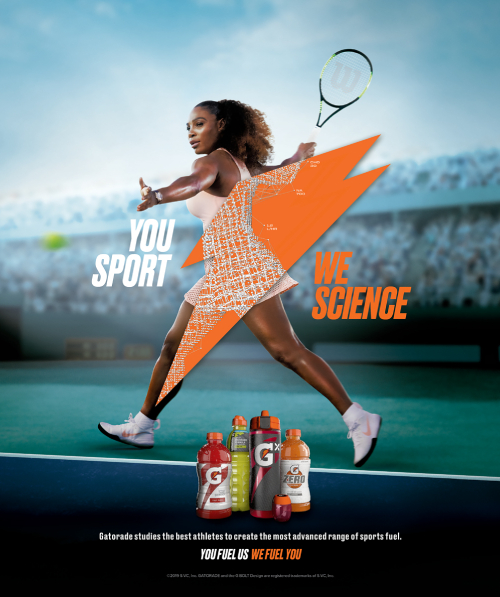
Have you realized now how this is a broken model?
These big companies always cite the benefits of their drinks and food products, but they never talk about the side effects and long-term effects. They will go to great lengths to bend scientific studies for financial gain and cherry-picking scientific results that show only the benefits of their products.
Even in the 1930s, doctors recommended that pregnant women should smoke to help calm them! Doctors themselves appeared in advertisements endorsing specific brands of cigarettes as the “type of cigarettes that even doctors smoke”.
In 2019, Coca-Cola spent more than 280 million dollars on advertising its flagship beverage, while PepsiCo invested close to 224 million dollars in promotions for their products.
Take a look at the ingredients of most of these sports drinks and bars and fast-food productsthat athletes endorse. You’ll see ingredients like canola oil, soybean oil, cottonseed oil, sunflower oil, safflower oil, peanut oil, and corn oil – all classified as polyunsaturated fatty
acids (or PUFA’). PUFA is in almost all “healthy” drinks and bars. Pizza and other fast foods are processed carbohydrates made with wheat (genetically modified and with pesticides) and other unhealthy products combined. The body does not recognize processed carbohydrates as something different; it treats it just like sugar!
Sugar has addictive-like properties. A 2018 paper from the Journal of Clinical Chemistry reported: “Sugar elicits addiction-like craving, and self-reported problem foods are rich in high-glycemic-index carbohydrates.” When you eat sugar, your brain releases dopamine – a reward chemical – that makes you feel happy. Your brain craves that feeling again and again. It wants more dopamine, so you crave more sugar. As stated before, causing more chronic diseases within our society.
Fox in Sheep Skin
Cynics may say that these multi-million-dollar companies like Coca Cola, Pepsi, Gatorade, Subway and others have been and continue to help youth programs and promote health and wellness campaigns generously.
Why wouldn’t they? It’s an easy way to reach and introduce their products to a new, young audiences–future customers, familiar and hooked to their products – often with nice tax write-offsas well! Some of them even promote exercising; however, what benefits do these exercise programs produce when kids are encouraged to eat their processed and toxic-ladened food?
Knowing What You Know Now….
If you are an elite athlete, would you still endorse these same toxic and unhealthy food and beverages without understanding how it affects your long-term health and wellness and your young fans’ health and wellness?
I am asking for your help.
Make sure as athletes and celebrities, you do diligent research on the products you endorse. The financial benefits are short term. By the time the effects of these sponsored products affect your health and wellbeing (it may even be down the line with the next generation with genomics), it may be too late for you and all the people who trusted and followed your recommendations.
Help the younger generation that is looking up to you by educating them on the benefits of eating “healthy real food” and be a role model yourself. All it takes is one person to stand up and care – truly care and be the right example for our society!
Don’t let short-term financial gain influence your values and responsibilities to society and people who trust you and look up to you.Let’s be the example we want to see in the world!
Reference Articles:
- (PDF) Sports Sponsorships of Food and Nonalcoholic Beverages (researchgate.net)
- Get the Facts: Sugar-Sweetened Beverages and Consumption | Nutrition | CDC
- Chick-fil-A scores big time with two pro athletes – Atlanta Business Chronicle (bizjournals.com)
- Serena Williams talks about her new tech-infused Gatorade ad (fastcompany.com)
- LeBron James Walked Away From $15 Million In Endorsement Money From McDonald’s For Blaze Pizza (forbes.com)
- OlymPicks: Winter Games Get Yummy with KFC, Pizza Hut as Sponsors after McDonalds Backs Down | the Beijinger
- NFL announces Subway restaurants as official sponsor
- Adult Obesity Prevalence Maps | Overweight & Obesity | CDC
- Sponsors | NFLPA
- NBA, Mondelez Reach Multiyear Marketing, Licensing Partnership That Includes Select Team Logos On Oreo Cookies (forbes.com)
- Serena Williams (forbes.com)
- What is Lionel Messi’s net worth and how much does the Barcelona star earn? | Goal.com
- Bolt Among World’s Richest Athletes Thanks To Deals With Puma, Gatorade, Others (sportsbusinessjournal.com)


